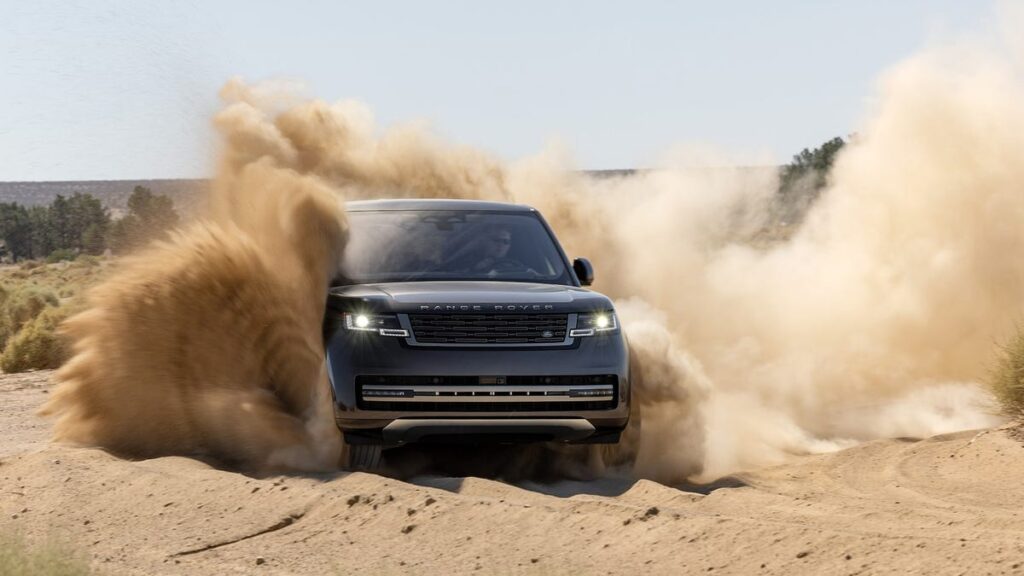Jaguar, Land Rover are the latest to react to looming tariffs
Jaguar and Land Rover have paused U.S. shipments in response, and U.S. preorders of the Nintendo Switch 2 have been delayed.
Fox – LA
Jaguar Land Rover (JLR) has stopped shipments to the U.S. for one month as it figures out how to respond to President Trump’s 25-percent tariff on imported vehicles. “The USA is an important market for JLR’s luxury brands. As we work to address the new trading terms with our business partners, we are enacting our short-term actions including a shipment pause in April,” it said in a statement.
The U.S. accounts for about 25 percent of JLR’s global sales. It is the company’s biggest single market for the full-size Range Rover, Range Rover Sport, and the Land Rover Defender, all of which command high prices and deliver big profits. Last financial year (to the end of March 2025) these three models alone accounted for 67.8 percent of total JLR sales worldwide.
Unlike BMW and Mercedes-Benz, however, both of which have large plants in South Carolina and Alabama building a variety of SUVs for both America and global markets, JLR has no U.S. manufacturing presence. It is therefore much more exposed to the negative impact of the Trump tariffs than its rivals. And there appear no easy options for JLR should the Trump administration stick to its hard line on imports.
Sources in Britain say JLR considered building a plant in the U.S. before Trump’s first presidency but chose to construct it in the European Union instead. Located in Nitra, Slovakia, and opened in 2018, the plant has a capacity of 150,000 vehicles a year and produces Land Rover Defender and Discovery models.
Building a new plant in U.S. would not only cost more than $1 billion—money JLR needs to spend on keeping its Land Rover product portfolio competitive and to relaunch Jaguar—but it would take at least two years to complete. And it would leave the automaker, which sold a total of almost 429,000 vehicles worldwide last financial year, with an expensive overcapacity problem. Beyond that, the extraordinarily capricious nature of the current Trump administration, and the increasing likelihood of challenges to the tariff rulings from Congress and the courts, mean the company has few certainties upon which a decision about investing in a U.S. manufacturing can be made.
For that reason, the Trump tariffs are also a major headache for rest of the $120 billion British auto industry. The Brits may no longer own the companies that produce their storied marques (JLR is owned by India’s Tata Group, Mini and Rolls-Royce by BMW, Bentley by Volkswagen, Lotus by Geely, and specialists such as Aston Martin, McLaren, and Morgan by an assortment of foreign sovereign wealth funds and other investors.) But those companies between them last year produced more than 905,000 vehicles, with one in six of them shipped to the U.S.
